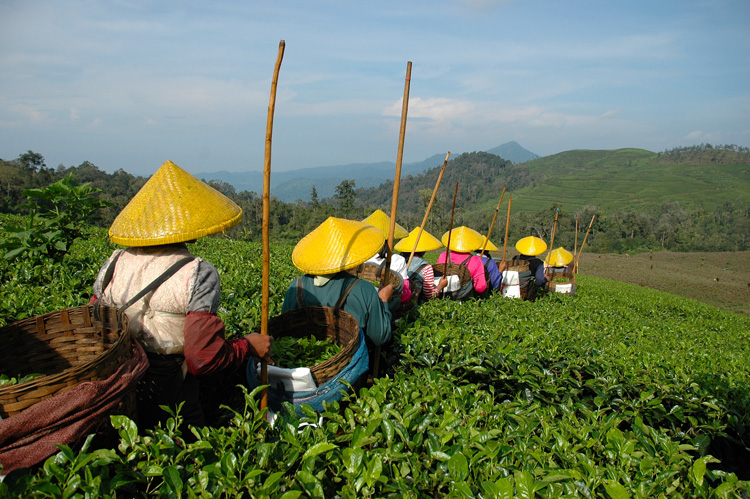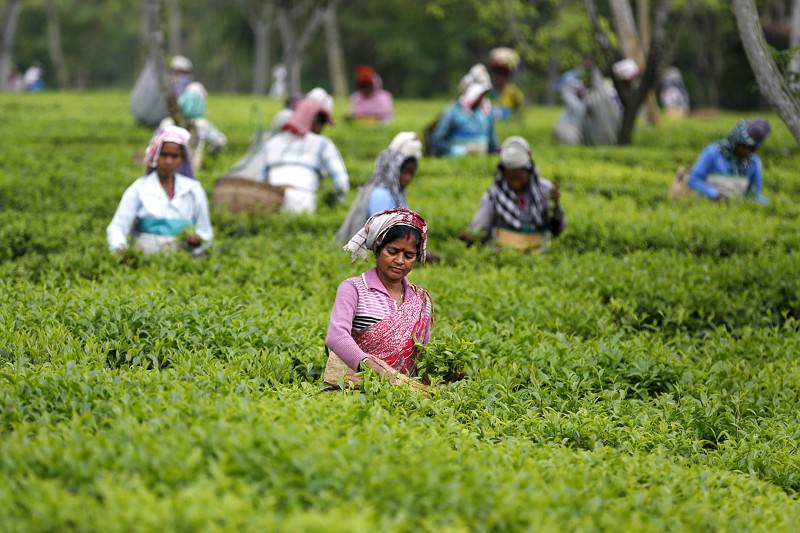PESTICIDES:
TEA TIME
A Canadian
study in 2014 showed that most mass-produced teas in Canada contain pesticide
residues, sometimes very numerous.
Being myself
a regular tea drinker for many years, I could not be insensitive.
Being a
farmer myself and producer of peaches and nectarines in conventional farming, I
am used to handling pesticides and residue analysis, so I am particularly
sensitive.
Picture: http://espacebonthe.ch/wp-content/uploads/2014/09/Tasse-de-th%C3%A9.jpg
The article
has a table with all its results, but without legal reference, I decided to
check how these results are, compared to standards in Canada and Europe
(whereas the tea situation in Europe is probably similar).
Here is the
result of my personal research.
You can go
check the Canadian standards on the page http://pr-rp.hc-sc.gc.ca/mrl-lrm/index-eng.php
You can also
go check the results on the European specific page http://ec.europa.eu/food/plant/pesticides/eu-pesticides-database/public/?event=pesticide.residue.CurrentMRL&language=EN
In
this table, I took the liberty to indicate the determination limit for
molecules that are not allowed on tea, and for molecules that don't appear in
the list.
Note that
the European legislation considers that any unauthorized product on a crop is
prohibited. Yet a minimum residue level is tolerated at the limit of
determination (that is to say at the lowest level that you can say with
certainty what molecule it is) to cover cases of import, because these molecules
can be allowed in non-EU countries.
By cons,
regarding the products that don't appear in the lists, their residue, even at
trace (that is to say below the determination limit) is prohibited.
Having found
no information on Canadian law regarding the molecules that the thresholds are
not fixed or that don't appear in lists, I used the same criteria.
Lo and
behold, the article is completely right. It is sure, in view of these measures,
that presented teas should be outlawed in Canada and even more in Europe.
This is a
very surprising result, when, as in my case, one is used to working constantly
with ever-increasing standards, increasingly stringent and ever more
controlled.
Picture: http://cdnimg.in/wp-content/uploads/2015/08/6cherryteagardenchina.jpg?cfaea8
I personally
draw a few lessons, or more precisely some unpleasant thoughts:
Tea
manufacturers seem to disregard the theoretical obligation to respect
regulations of both the countries of origin of the product and the country of
destination.
This
obligation is controlled for fresh products, and it is a daily concern for
farmers, at least those I meet regularly, European farmers.
The
number and severity of the standards in Europe is partly responsible for the
serious crisis that is living its agriculture.
Administrations
responsible for enforcing standards, appear to have serious gaps in imported
products control procedures. These teas should never have been put on sale.
Be aware
that in Europe, a product whose residues exceed the standards is not even
allowed to travel on the road. In other words, a farmer whose production
exceeds the standards can’t send it from his farm to the place where they must
be prepared for shipment and sale. They are considered contaminated and should
be supported by a company specializing in treating toxic waste.
I don't
think there is a health risk with these teas, but if there is a law, it must be
respected by all. Otherwise it is useless.
Picture: http://www.clermontcentre.com/wp-content/uploads/2010/09/N%C3%82%C2%B01-chinese-tea-plantation3-26.jpg
How
is it possible that not conform teas of known brands have been able to pass all
control steps unmolested, and end up being normally consumed?
What then
are all these standards overburdening Western farmers, if imported products are
not subject to the same rules?
It is also
very surprising that some teas have many residues none of which is stated in
Canadian law.
I also do an
observation that comes only reinforcing my opinion, I already talked about it
and repeated several times: whatever can say certain groups to opaque
objectives, European agriculture is the most friendly in the world, and
therefore the healthiest. There remains room for improvement? Undoubtedly, and
it's gradually done, day after day.
But perhaps
it would be good to stop demonize European agriculture, what are bent on making
the media in recent years, while if there are serious problems, they probably
come mainly from imports.
Referring
to European legislation, only two teas would be consistent and therefore
marketable, that is to say, teas that have no residues whose percentage exceeds
100% of the standards.
I don't know
tea growing, and I don't know its phytosanitary problems. Still, I am very
surprised that the same sample can contain more than 10 pesticides. I see three
possible explanations: either the production region is particularly sensitive
to many pest problems, or the farmer does not take the most elementary
precautions in the use of pesticides, or this tea is the result of a blend of
teas of various origins, resulting in a mixture of pesticides.
Looking at
the most charged in residue tea, with a technical look, one realizes that the
only plausible explanation is that they are mixtures. Indeed I find no valid
technical justification, even without knowing the crop, to explain the
presence, in the same sample, of several pyrethroids (bifenthrin, cypermethrin,
deltamethrin, fenpropathrin, lambda-cyhalothrin), several neonicotinoids
(acetamiprid, imidacloprid, thiacloprid, thiametoxam) or several miticides
(clofentezin, dicofol, pyridaben, fenazaquin, fenpyroximate, hexithiazox,
propargite).
But it is
unbelievable that we can arrive at such a situation in ordinary consumer
products.
Picture: https://d1o50x50snmhul.cloudfront.net/wp-content/uploads/2015/06/dn27714-1_800.jpg
One
can also legitimately wonder, looking at the differences of approval of
pesticides for a single product such as tea, if it can't represent a problem in
relation of the free trade agreement CETA, recently signed between the European
Union and Canada.
That said,
and given the worrying results of this investigation, perhaps it would be
interesting that the same kind of work is done here in Europe.
The European
food production is extremely controlled. This is a problem for farmers, but it
is a common good.
Perhaps the
European Union should take the necessary precautions for its own agriculture
should not be further penalized by imports of non-EU products which don't
respect its laws.
It would
have the double advantage of protecting its own agriculture, while ensuring
that consumer surveys can't detect serious flaws in the sanitary control
systems.
It would
gain in both agriculture and institutions credibility.
Picture: http://www.notonthehighstreet.com/system/product_images/images/001/240/489/original_alice-in-wonderland-tea-time-print.jpg







Aucun commentaire:
Enregistrer un commentaire